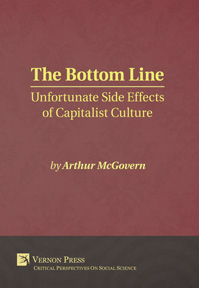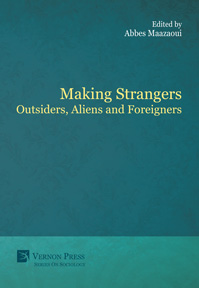Neither Capital, Nor Class
A Critical Analysis Of Pierre Bourdieu's Theoretical Framework
by Jacek Tittenbrun (University of Poznan, Poland)
Purchase this book
(click here to change currency)
" What does a ruling class do when it rules? Does gender trump class in social struggle for recognition and accumulation of capital? Can we praise Bourdieu for inventing informational, scientific, symbolic, academic, legal and linguistic capital? Jacek Tittenbrun, a sociologist trained on Marx and Weber, researching social stratification and poverty of the nickeled and the dimed, does not think so. He blames the author of “La distinction” for flawed understanding of ownership and for blurring the difference between classes, strata and estates. For instance, no matter how fine the distinctions between cultural capitals can be observed, they do not explain the increasing class differentiation of formally equal schools and universities. Why does egalitarian access to a high school or college education prompt class struggle and the elitist quest for meritocratic excellence, which leaves many students, primarily from lower strata, behind? Tittenbrun suspects, as did Wallerstein, that social sciences are being colonized by capital along with the rest of social life, and that the many shades of the concept of cultural capital are in fact grey and not green at all."
Slawomir Magala,
Erasmus University Rotterdam and Jagiellonian University Cracow
" This is the most complete and systematic critical analysis of Pierre Bourdieu's theory of social structure. Tittenbrun's discussion of the types of capital and of reproduction, in particular, are the best I have seen. His criticism extends also to the work of Levi-Strauss, Bourdieu's mentor; and of economists and other social scientists, from Bohm-Bawerk and Clark on, who have conceptualized capital and other categories used by Bourdieu. As was the case with a predecessor in this genre, Engels' Anti-Duhring, the critique of Bourdieu serves Professor Tittenbrun as a basis for a coherent statement of his own theoretical position, in this instance in relation to capital and other core concepts of economic sociology."
Carlos H. Waisman,
Professor, Department of Sociology, University of California, San Diego
This book offers an in-depth examination of Pierre Bourdieu's theoretical framework. The book is not just a collection of more or less critical remarks but constitutes a coherent whole, underpinned by an original analytical framework. This conceptual apparatus makes it possible to present some alternative solutions to the theoretical problems under consideration.
The book goes largely against the grain of views that are dominant in the literature on Bourdieu. Therefore, its conclusions may be surprising to many a reader. The book demonstrates that Bourdieu's well-known theory of 'capital' forms is untenable, resembling more an illegitimate metaphor rather than a scientific concept. In a similar vein, the Bourdesian class theory should be largely regarded as a variant of social stratification rather than class. There are many theoretical and empirical problems with Bourdieu's theory of social and cultural reproduction as well. There is more to the above criticisms than meets the eye. The point is that many weaknesses of Bourdieu's style of theorising seem to stem from his intellectual dependence upon structuralism, especially in Claude Lévi-Strauss' version. It is this affinity that accounts for such features of Bourdieu's approach as its essentialism, formalism and epistemic idealism.
The book will be of interest primarily to students of Bourdieu's many and varied contributions to social theory. In view of Bourdieu's immense influence, it will also hold interest to critical scholars in political science, economic sociology and political philosophy.
PREFACE
CHAPTER 1. THE DISCRETE CHARM OF CAPITAL OR THE PITFALLS OF HIERARCHY
CHAPTER 2. FRENCH STRUCTURALISM OR THE PROBLEM OF FORMALISM
CHAPTER 3. ECONOMIC IMPERIALISM IN THE EYES OF ECONOMISTS
CHAPTER 4. 'CAPITAL' AND 'CLASS'
CHAPTER 5. PUBLIC SOCIOLOGY
CHAPTER 6. SOLIDARITY - THE CORE OF EUROPEAN COMMUNITY
CONCLUSION
ABOUT THE AUTHOR
REFERENCES
INDEX
Jacek Tittenbrun is a full professor at the Institute of Sociology, Adam Mickiewicz University, Poznan, Poland. His research experience includes a research project on social exclusion funded by the European Social Fund. His numerous publications centre around, but are not limited to, economic sociology and social class. He is the author of several books including: The Collapse of Real Socialism in Poland (1993); Private Versus Public Enterprise (1996); Economy in Society: Economic Sociology Revisited (2011) and Anti-Capital - Human, Social and Cultural: The Mesmerising Misnomers (2013).
capital, social capital, social class, social stratification
See also
Bibliographic Information
Book Title
Neither Capital, Nor Class
Book Subtitle
A Critical Analysis Of Pierre Bourdieu's Theoretical Framework
ISBN
978-1-62273-207-4
Edition
1st
Number of pages
366
Physical size
236mm x 160mm

![Neither Capital, Nor Class [Hardback]](/file/3478/784a648320aec69b56824a29a98d55f3/1488754424.jpg)







